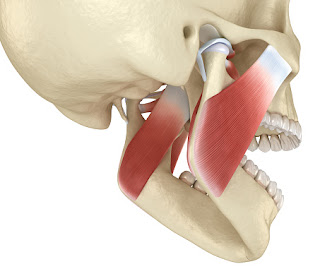TMJ Pain Relief
You may not think about your temporomandibular joints (TMJ) much, but you use them a lot. The joints connect your jawbone to your skull. Your TMJ springs into action each time you talk, chew, and swallow. TMJ disorders occur when something goes wrong with your jaw joints and jaw muscles. Oftentimes, this happens because of a jaw injury, inflammation such as with arthritis, or overuse.
TMJ disorders may cause mild to debilitating symptoms, such as:
pain while chewing
pain in the ear, face, jaw, and neck
clicking, grating, or popping sounds in the jaw when you open or close your mouth
locking of the jaw joint
headaches
In some cases, the symptoms of TMJ disorders may go away without treatment. If your symptoms persist, your doctor may recommend a variety of treatment options, often more than one to be done at the same time.
Medications
Along with other nonsurgical treatments, these medication options may help relieve the pain associated with TMJ disorders:
Pain relievers and anti-inflammatories. If over-the-counter pain medications aren't enough to relieve TMJ pain, your doctor or dentist may prescribe stronger pain relievers for a limited time, such as prescription strength ibuprofen.
Tricyclic antidepressants. These medications, such as amitriptyline, are used mostly for depression, but in low doses, they're sometimes used for pain relief, bruxism control and sleeplessness.
Muscle relaxants. These types of drugs are sometimes used for a few days or weeks to help relieve pain caused by TMJ disorders created by muscle spasms.
Therapies
Nondrug therapies for TMJ disorders include:
Oral splints or mouth guards (occlusal appliances). Often, people with jaw pain will benefit from wearing a soft or firm device inserted over their teeth, but the reasons why these devices are beneficial are not well-understood.
Physical therapy. Along with exercises to stretch and strengthen jaw muscles, treatments might include ultrasound, moist heat and ice.
Counseling. Education and counseling can help you understand the factors and behaviors that may aggravate your pain, so you can avoid them. Examples include teeth clenching or grinding, leaning on your chin, or biting fingernails.
Surgical or other procedures
Arthrocentesis for TMJ
ArthrocentesisOpen pop-up dialog box
When other methods don't help, your doctor might suggest procedures such as:
Arthrocentesis. Arthrocentesis (ahr-throe-sen-TEE-sis) is a minimally invasive procedure that involves the insertion of small needles into the joint so that fluid can be irrigated through the joint to remove debris and inflammatory byproducts.
Injections. In some people, corticosteroid injections into the joint may be helpful. Infrequently, injecting botulinum toxin type A (Botox, others) into the jaw muscles used for chewing may relieve pain associated with TMJ disorders.
TMJ arthroscopy. In some cases, arthroscopic surgery can be as effective for treating various types of TMJ disorders as open-joint surgery. A small thin tube (cannula) is placed into the joint space, an arthroscope is then inserted and small surgical instruments are used for surgery. TMJ arthroscopy has fewer risks and complications than open-joint surgery does, but it has some limitations as well.
Modified condylotomy. Modified condylotomy (kon-dih-LOT-uh-mee) addresses the TMJ indirectly, with surgery on the mandible, but not in the joint itself. It may be helpful for treatment of pain and if locking is experienced.
Open-joint surgery. If your jaw pain does not resolve with more-conservative treatments and it appears to be caused by a structural problem in the joint, your doctor or dentist may suggest open-joint surgery (arthrotomy) to repair or replace the joint. However, open-joint surgery involves more risks than other procedures do and should be considered very carefully, after discussing the pros and cons.
If your doctor recommends surgery or other procedures, be sure to discuss the potential benefits and risks, and ask what all your options are.



Comments
Post a Comment